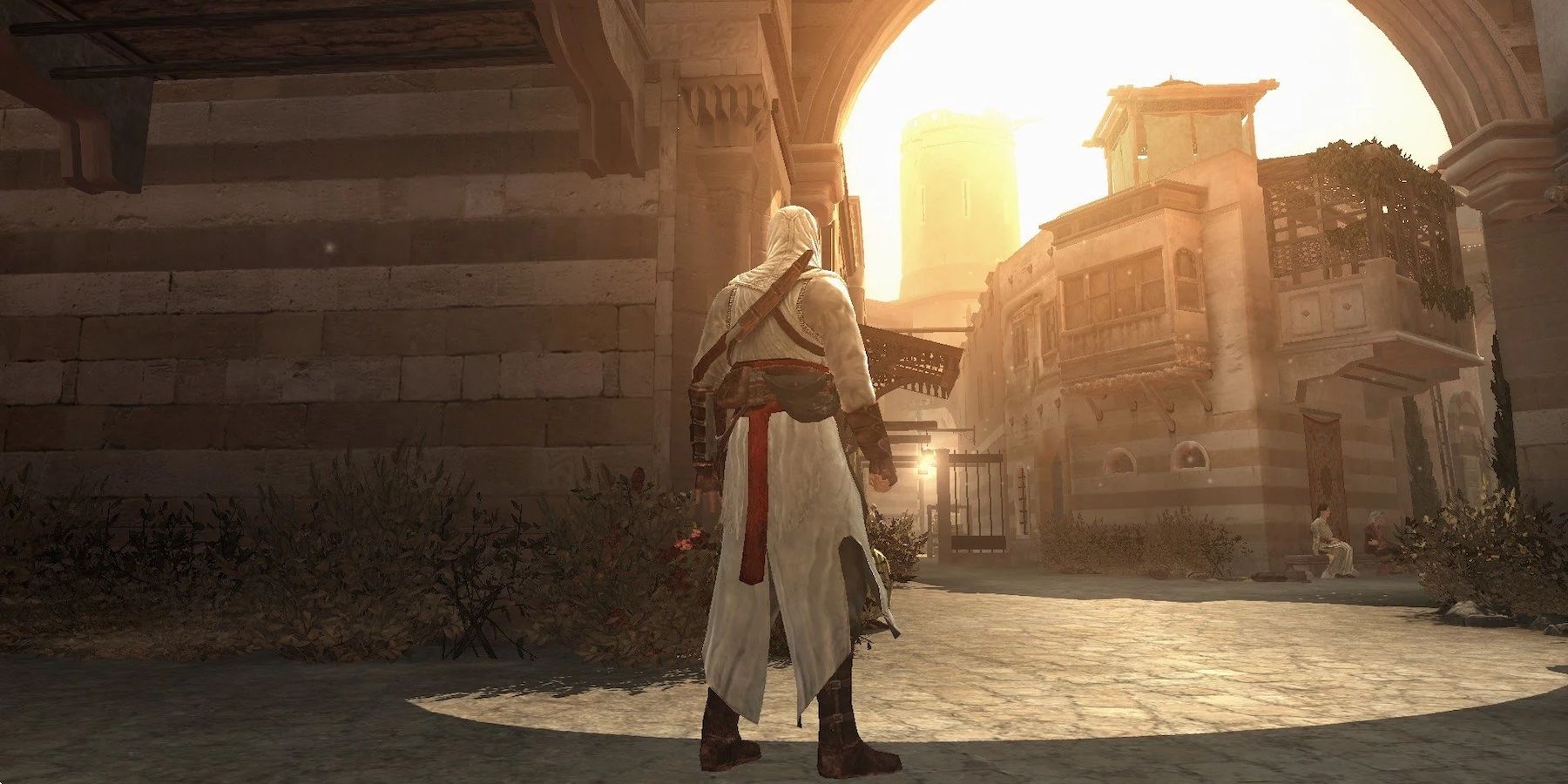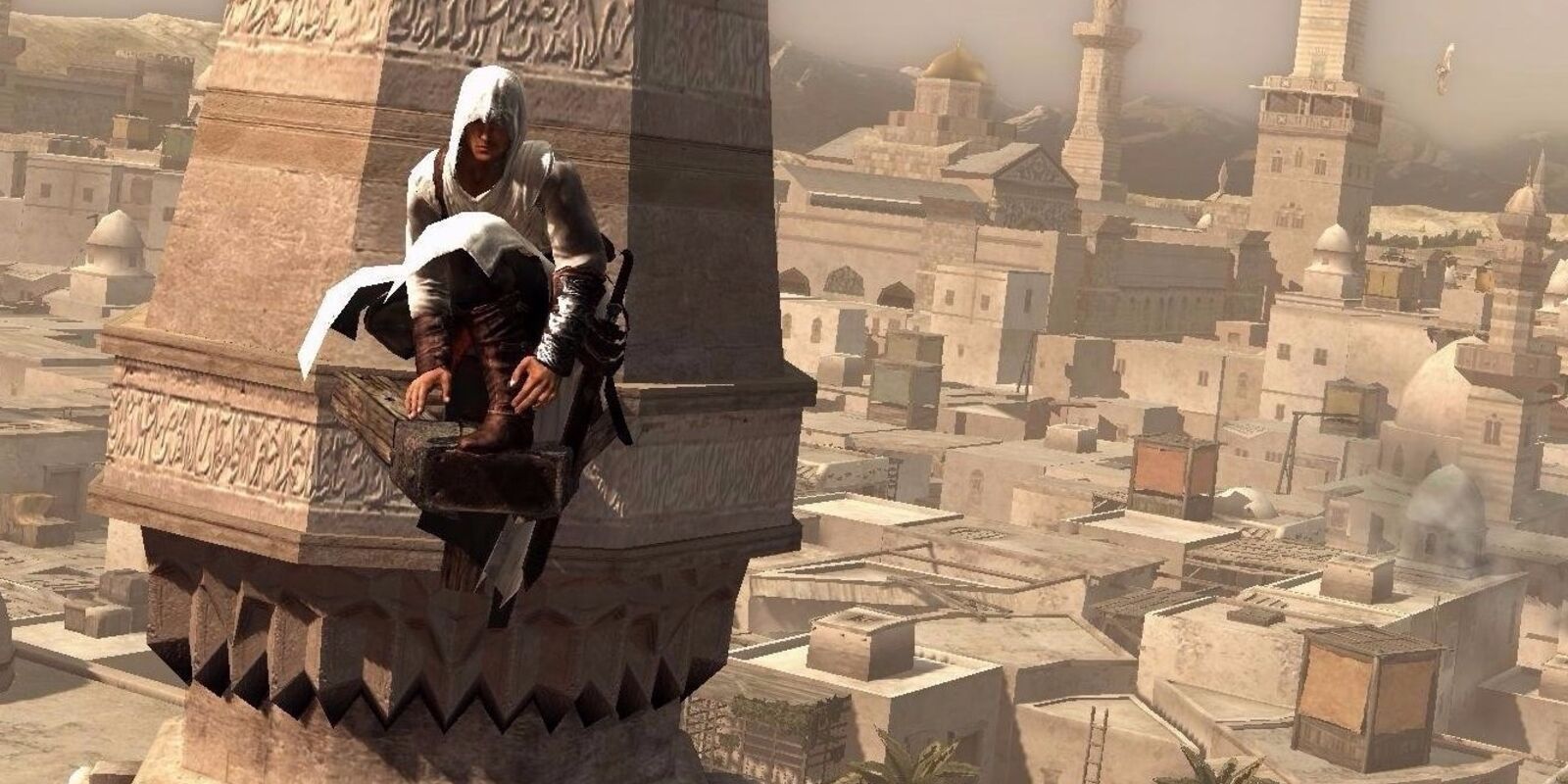Fans of the original Assassin’s Creed have been clamoring for a remake of the first game in the long-running series, hoping that an updated version might address some of the original’s flaws and allow it to reach its full potential. Rumors have circulated for some time, reaching a new level of intensity earlier this year, when Ubisoft dropped a video celebrating the franchise’s 15th anniversary that seemed to contain remastered graphics from the older game. Recent leaks have also claimed that a remake of Assassin’s Creed could be included as part of the Season Pass for the upcoming Assassin’s Creed Mirage, slated for release in 2023. So far, though, there has been no official confirmation of these stories - to the contrary, Ubisoft responded to Assassin’s Creed 1 remake rumors with a denial, stating that the updated graphics seen in the video were merely touch-ups and that no full-scale remake was planned for its pioneering game.
Still, speculation continues, and with good reason. Ubisoft is known for doing remakes and remasters of some of its most popular games, including games in the Assassin’s Creed series. Most of the older franchise games have been updated for release on more modern consoles and Ezio Auditore, one of the series’ early protagonists, has reappeared in a 2016 remastered three-game boxed set of earlier releases. Lending further credence to speculations that a Season Pass for Mirage might include an AC1 remake is the fact that Ubisoft has done that very thing before, bundling a remaster of Assassin’s Creed 3 as part of its Season Pass for Assassin’s Creed Odyssey.
With no official confirmation in view, however, fans can only continue to speculate about the likelihood of a remade Assassin’s Creed. That remake is desirable not only for the upgraded visuals and mechanics it would likely include but for what it might mean for AC1’s narrative and the quality and difficulty of its missions. For its time, Assassin’s Creed was an amazing, groundbreaking game in its scenery, storyline, and gameplay, but it had limitations that could be addressed in a full-scale remake by Ubisoft.
Assassin’s Creed 1 Is Great & Deserves A Remake
The first entry in the Assassin’s Creed franchise - officially titled Assassin’s Creed but often referred to as AC1 - introduced players to the Assassin’s Brotherhood (changed from Hidden Ones of Assassin's Creed's more recent games) and to the series’ primary plot device, a machine called the Animus that allowed a modern person to relive the “genetic memories” of their distant ancestors. In AC1, that person is Desmond Miles, who is kidnapped and transported back to the 12th century Middle East as Altaïr, a member of the Brotherhood tasked with assassinating nine targets in various Holy Land locations. In doing so, Altaïr unearths the age-old conflict between the Assassins and their hated enemies, the Knights Templar, and their competition to discover powerful artifacts called Pieces of Eden. The struggle between these rival groups and their quest to recover the missing artifacts extends through the arc of the game series, becoming richer and more complex.
Assassin’s Creed introduced some narrative and gameplay elements that could be improved in a remake of the original game (or, conceivably, in another Assassin's Creed spin-off fantasy or survival game). Altaïr was an incredible acrobat, able to perform all kinds of parkour moves, such as running up walls, climbing tall buildings, and leaping from up high to assassinate someone on street level with his retractable hidden blade. Elements like these had not been seen before in video games and made the gameplay of Assassin’s Creed uniquely thrilling.
The game also took the stealth component of action-adventure gaming to new heights, making eavesdropping, pick pocketing, sneaking, and silent killing center points of the action and key to completing missions and side quests successfully. These gameplay elements remained in later games of the series, though they became less important more recently as the franchise embraced the open-world RPG model. Titles like AC Odyssey and AC Valhalla rely less on stealth mechanics than earlier games had, though these are said to be making a comeback in the forthcoming AC Mirage, a return to the franchise's roots.
An AC1 remake could use newer technology and control options to enhance the classic gameplay elements of the original and the backgrounds against which they take place. The original game was praised for its accurate depictions of such Middle Eastern cities as Jerusalem, Acre, and Damascus, and for the renderings of their architecture and urban layouts, all of which are beautiful, lush, and full of life. These elements would be further enhanced using modern graphic and design elements, as would the behavior of NPCs and other environmental features with the use of enhanced AI - correcting problems with the game that were observed even at the time of its release.
Repetitive Gameplay Is A Problem In Assassin's Creed 1
A remade AC1 could also address its repetitive gameplay, the biggest problem with the original apart from the Assassin's Creed series most annoying plot gimmick, the Animus. Although the overarching story is intriguing, AC1’s missions tend to be unvarying: Altaïr visits a city, contacts his informant, gathers intelligence, and assassinates his target. None of this is particularly challenging or difficult (intelligence gathering in particular quickly becomes boring), and even the assassinations become predictable: sneak up on the target, take out some guards, kill the target. Even if Altaïr is spotted by guards he still ends up killing his target most of the time and at little risk to himself. And while there are side quests aplenty, few of them feel particularly urgent or integrated into the larger story of the game. It might be a nice thing to save citizens from bullies and guards, but the game offers no real incentive for Altaïr to do so.
Assassin’s Creed was a revelation for its time, despite the claim by some that the first game ruined the entire Assassin's Creed series by dangling too many plot threads. Its parkour and stealth elements were new and exciting, and its open world was gorgeous and detailed. But much of that open world was flat, neither available for exploration nor integrated into the narrative through meaningful side quests or challenging missions. A new and improved Assassin’s Creed could maintain and build upon the strengths of the original while providing a renovated gameplay system that makes the individual missions more difficult and diverse while fully exploiting the potential of the magnificent open world in which it is set.



